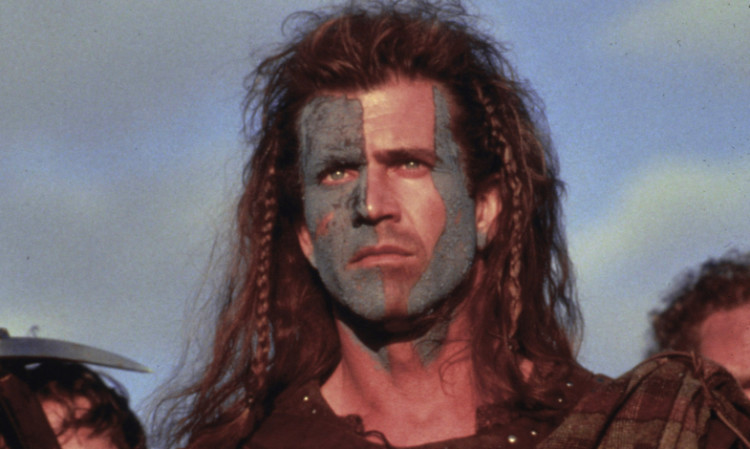“They may take our lives, but they will never take our freedom!”
Remember that? Braveheart affected everything from tourism, to our film industry to our football team. It won five Academy awards which is a remarkable feat in itself. It even kick started a conversation by the Scottish Secretary at the time, Michael Forsyth, to look at getting a Scottish film studio, not that it ever happened.
Love it or loathe it, it’s been a big part of Scotland’s recent cultural history. Marking the 20th anniversary since production began, on Tuesday night I went to the Dominion Cinema in Edinburgh for a special red carpet commemorative screening with the film’s stars minus Mel Gibson, who sent a special video message.
Obviously the movie makers were keen to capitalise on potential publicity out of this referendum year, since next year is the actual 20th anniversary since the film release and the new DVD release (not to mention the 700th anniversary since the Battle of Bannockburn this week).
Watching the movie again reminded me that large parts are completely fictitious, such as people dressing up in kilts hundreds of years before they actually did. But it’s not supposed to be accurate, it’s a movie. In the Q&A with the cast at the event, someone said they had stand-up arguments with Mel Gibson on set about the historical inaccuracies of the film, but Mel simply told him it didn’t matter because his focus was entertainment.
Braveheart clearly continues to evoke strong feelings nearly 20 years on, which got me thinking, why is it still so significant? I guess the fact we are talking a year ahead of it being released shows its relevance. I think it was to do with the timing of its release, a gap in the market and a bit of politics that made it and makes it to this day such a taking point.
Being interviewed by BBC’s Sarah Smith ahead of the special screening, Brian Cox, who played Argyle Wallace in the film and also starred in Rob Roy which was released the same year as Braveheart, said: “People in Scotland were not feeling at their best at beginning of the 90s after Thatcher and her devastating impact on industry. So the movie released something and of course the global significance of the film and how it went Oscar-wise, was maybe slightly hysterical, but quite extraordinary at the same time.”
So, a stirring movie after over a decade of depression under Tory rule. Plugging a hole. There are not many evocations of Scotland on the world stage, which has given Braveheart a prominence worldwide that one could argue it ordinarily would not have had.
We have a state broadcaster in the BBC that barely produces any Scottish content and a film industry bursting with home- grown talent and extraordinary shoot locations but not the economic clout to incentivise film production in Scotland or compete with the tax breaks that other countries offer.
Since Braveheart there hasn’t really been a big blockbuster about Scotland that has filled its shoes. Disney’s Brave, as lovely as it was, was a gentle story for kids. Which begs the question, that given that Scotland, with its rich history, has so many heroes, stories and legends, why are we not talking about them?
Our film reference points for Scotland are still Braveheart and Trainspotting.
As film critic Siobhan Synnot pointed out, there is a third Dylan Thomas movie out which is showing at Edinburgh Film Festival but not one about Rabbie Burns. It’s bordering on ridiculous.
Then there is the whole “Braveheart nationalism” effect. Personally, and for most, I don’t think the movie makes one iota of difference to how Scots perceive Scotland’s place in the world. But it did tap into something.
Mel Gibson was not interested in politics when he made the movie, he was interested in romance and the story of oppression these will always tug at the heart strings but in terms of the current debate Peter Mullan summed it up for me: “I’m for independence but the people of Scotland won’t be influenced by a movie. This is a serious referendum. Braveheart was candy floss compared to this.”
What Braveheart shows us today is the lack of Scottish productions and the need for a new generation of filmmaking about Scotland’s stories that portray a modern Scotland in all its glory and grit.
Films like Sunshine on Leith and The Angels’ Share and the pending Scottish Government announcement of a Scottish film and sound studio complex shows we are moving in the right direction.
However, we need access to all the tools in the box. We need to have tax powers to incentivise film makers to come to Scotland so we can capitalise on our outstanding scenery, to be in control of our vast assets to invest in this key industry for the future and put Scotland on the global stage so the world takes notice.
When asked after winning his Academy Awards how much of the Oscar belonged to Scotland, Mel Gibson apparently said “about an ear”.
I look forward to an Oscar won by a film made in Scotland that all of Scotland can be proud of. Our potential is huge, we just need to realise it.
